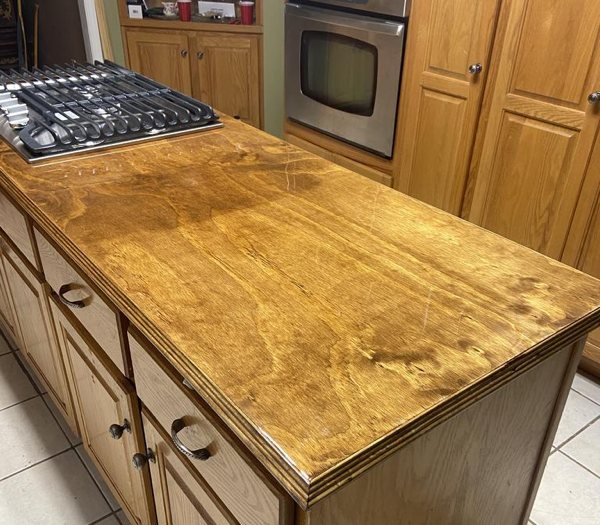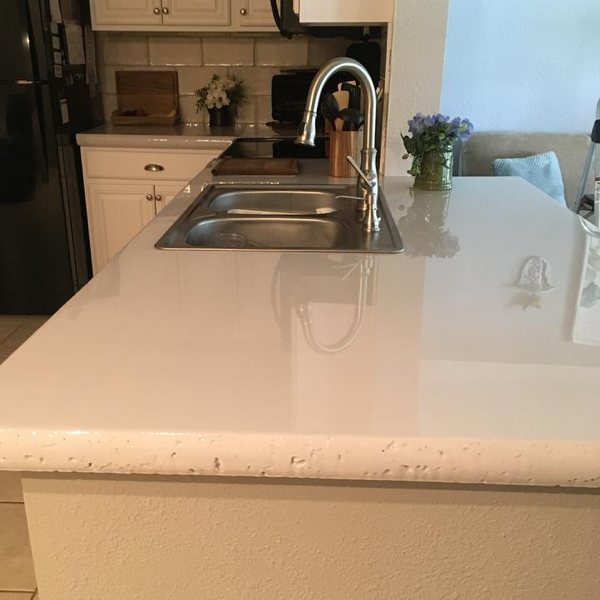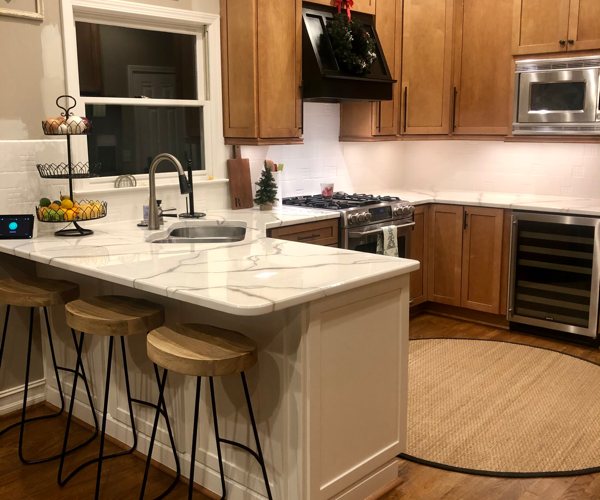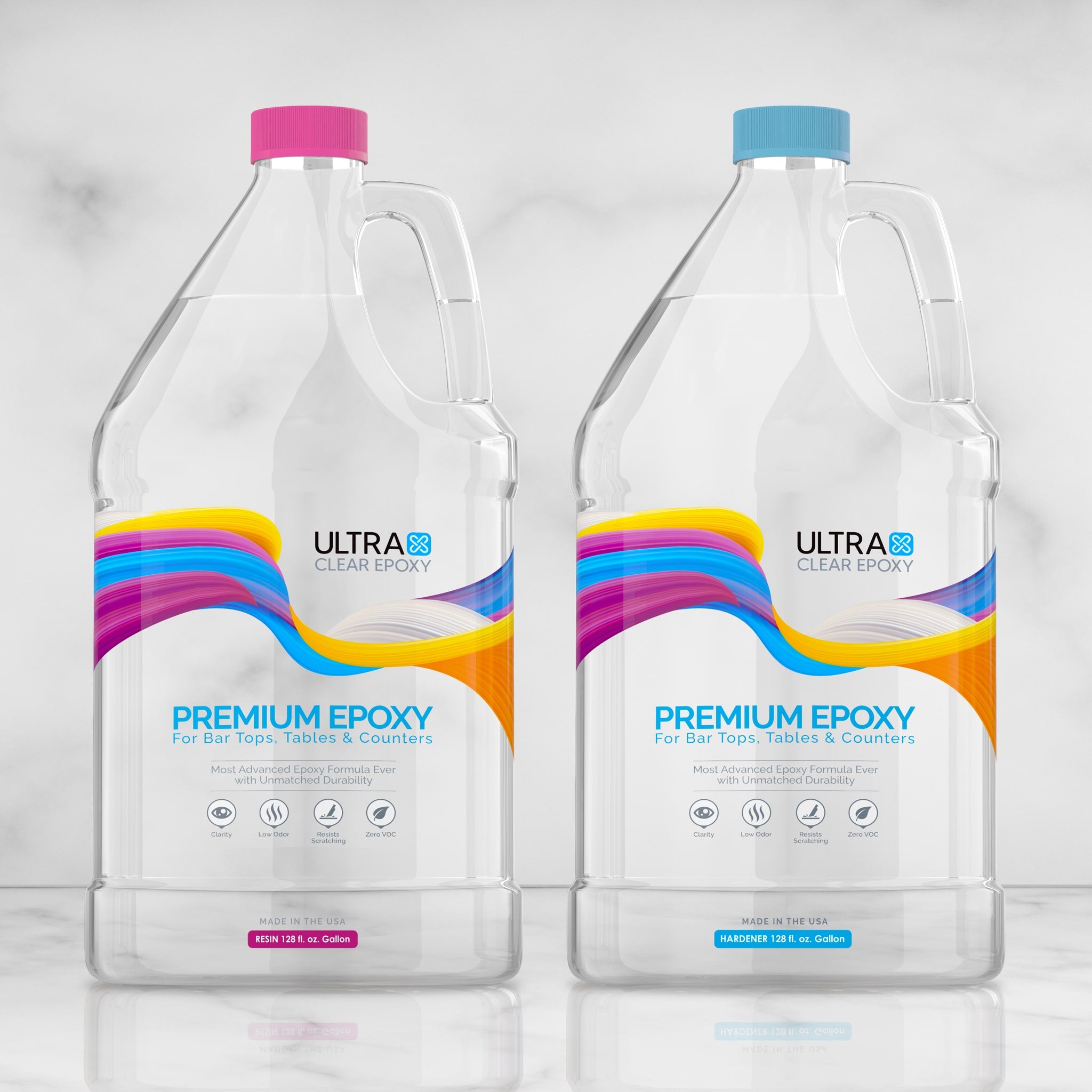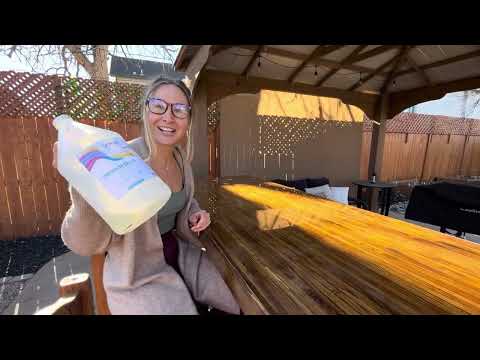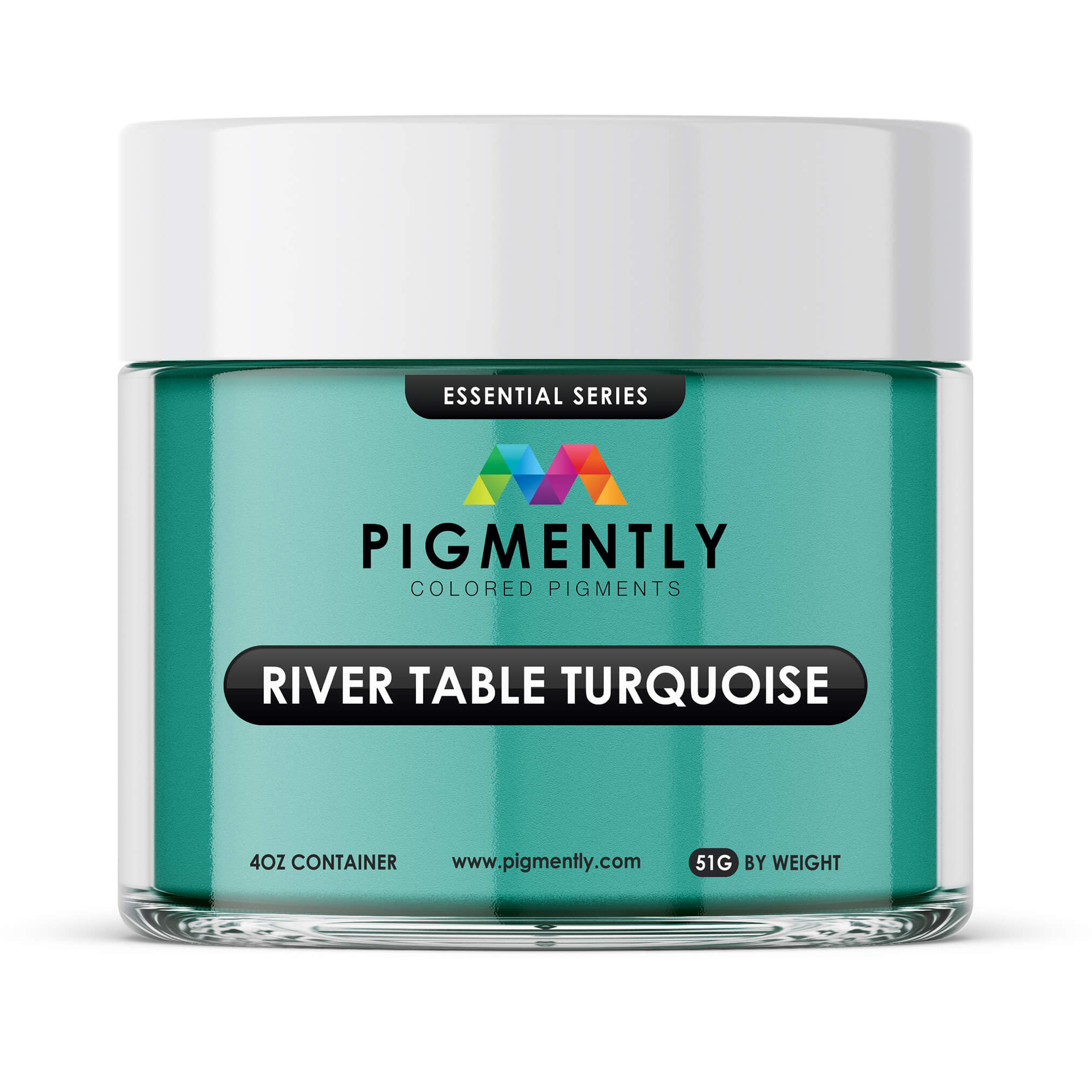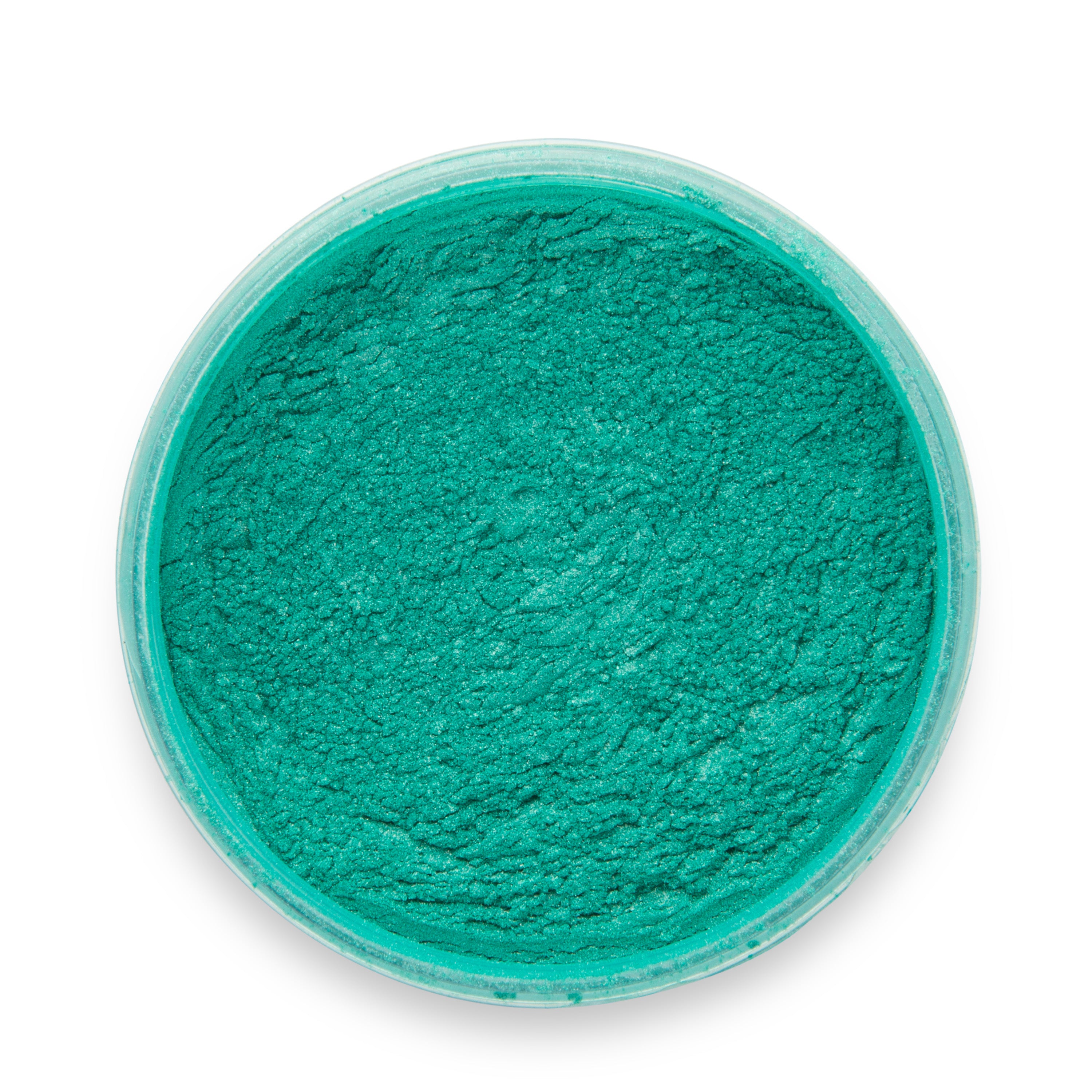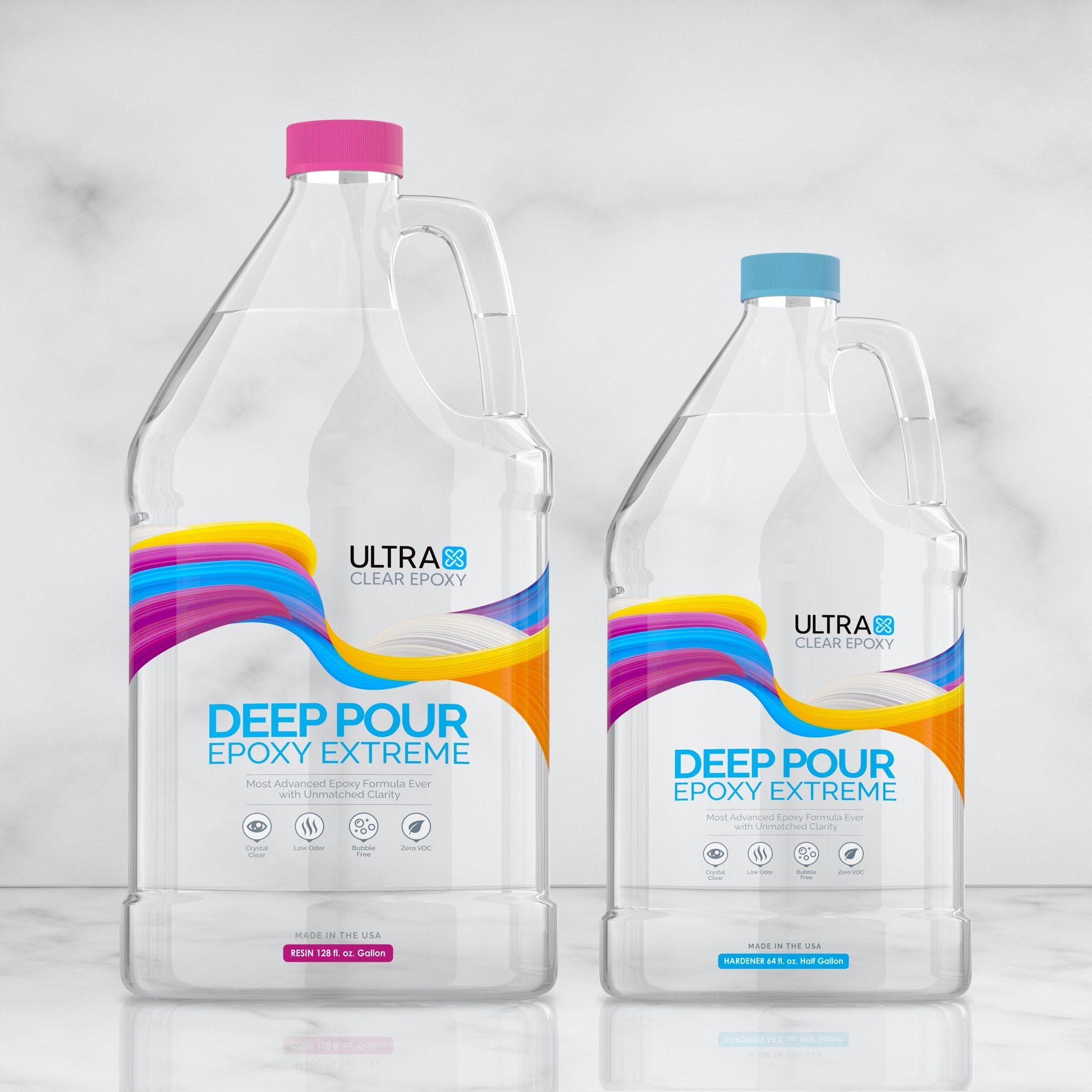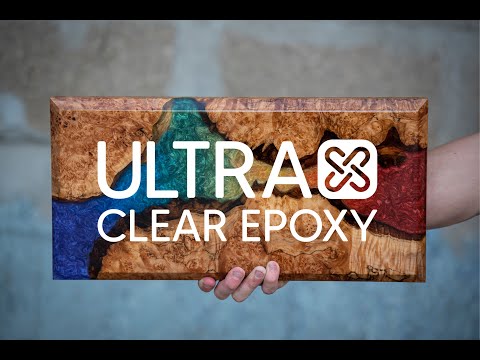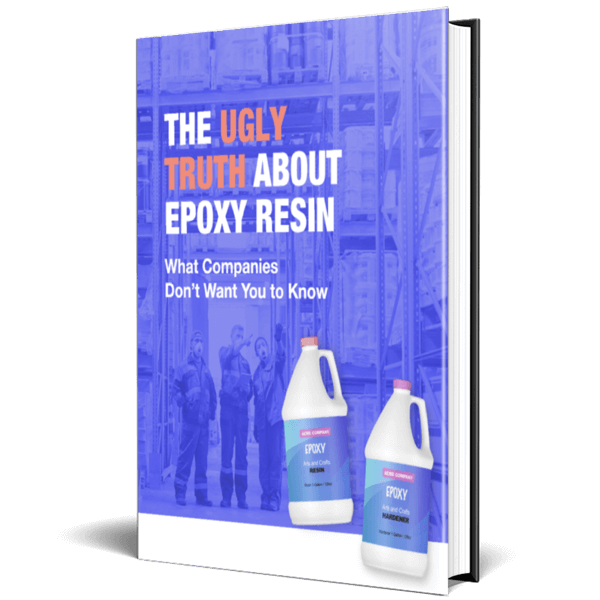Among possible countertop materials, epoxy and quartz both make the list for some of the most durable and long-lasting choices. Between the two of them, there is a surprising amount of overlap in benefits, but notable variance in their weaknesses.
In this article, we'll be comparing epoxy to quartz to see which comes out on top in different situations.
But first, let's consider what either of these two materials actually are.
What is epoxy?
Epoxy is a liquid polymer that hardens into an incredibly durable solid. Epoxy is typically used as a protective finish for various types of furniture and fixtures, such as table tops, countertops, bar tops, seating, and much more.
Epoxy starts as two separate liquid components. When these components are mixed together in the correct proportions, a chemical reaction begins, which causes the epoxy to cure (harden). The curing process typically takes about 72 hours for a medium-to-large project. It can take longer if the right environmental conditions are not met, but it's very rare that it doesn't cure at all (typically in frigid temperatures).
There are several common types of epoxy, but the best ones for countertop projects are bar top epoxy and deep pour epoxy, depending on the type of countertop project you're doing. Bar top epoxy is usually the right choice, but deep pour epoxy is optimal for thick countertops with epoxy river veins.
In our UltraClear store, we offer premium-tier epoxy resins of both types:
Our UltraClear epoxy resins are made with higher-quality ingredients than most epoxy resins, making them stronger and more resilient to heavy use. This also means they can endure accidental impacts and other forms of damage better.
What is quartz?
Quartz countertop material, which is technically engineered stone quartz, is made with a mixture of pure or nearly pure ground quartz mineral and a resin such as epoxy or unsaturated polyester.
To make a slab of engineer stone quartz, it the mixture gets placed into a mold and subjected to a vibrocompression vacuum. Vibrocrompression uses intense vibration and pressure to evenly compact the material into a solid slab. The vibrations forcibly release air to allow the resin to fully permeate the crushed quartz.
Note: Quartz, which is a specific mineral, should not be confused with the natural stone quartzite. Quartzite is rock that consists primarily—but not solely—of quartz mineral. This rock is often whole cut into large blocks, which are transported and processed later after inspection. Entire quartzite slabs are cut from these blocks and used in various types of projects.
Are epoxy countertops better than quartz?
Let's see how epoxy and quartz compare to each other in various categories. We'll consider the following:
- Durability (e.g., scratch resistance, impact resistance)
- Staining (e.g., chemical and water resistance, porosity)
- Heat Resistance (how much heat can the material withstand)
- Aesthetic clarity (how clear and clean the material looks)
- Maintenance requirements (how much upkeep and cleaning does it need)
Category #1: Durability
Both quartz and epoxy are highly durable, each featuring high resistance to scratching and impacts. Users of these materials often find that after several years, neither type has received notable damage through ordinary use.
When damage does occur, though, a thick epoxy finish is much easier to restore than an engineered quartz countertop.
Ultimately, you can't go wrong with either choice on the basis of durability. They both fare exceptionally well.
Category #2: Staining
Quartz and epoxy are each excellent at avoiding stains. Because epoxy is ultra-smooth, there's no place for liquids to permeate and stain the material. Similarly, the heavily compacted form of engineered stone quartz also resists staining for similar reasons.
Epoxy resin is an excellent finish on many different types of countertop materials for this reason. It provides them waterproofing, stain resistance, and will keep them clean and dry.
Category #3: Heat Resistance
In the case of heat resistance, both are more than adequate. The resins that bind the quartz, as well as the resin that makes up epoxy, are both able to withstand temperatures of at least 135°F.
Beyond 135°F, epoxy will begin to soften or become susceptible to other types of heat damage. The crushed quartz mineral in an engineered stone quartz countertop will not be bothered by temperatures at this level, but the binding agent that holds it all together can soften or melt. This is rarely a concern, most contained to kitchen countertops.
In most cases, it is best to place a buffer between high heat sources and your countertop surfaces by using trivets, pot holders, coasters, etc.
Category #4: Aesthetic Clarity
A high-quality epoxy resin will cure to a crystal-clear finish. This means it can showcase with vividness any substrate material it is preserving.
Many users may also choose to infuse their epoxy with colorful pigments, which make it opaque and can impart a variety of different tones and visual effects, including a marble-like appearance.
Quartz, on the other hand, is also well-received for its usual form. Quartz crystals come in a small range of different colors. Quartz itself is clear, but the other impurities may exist in it that give it a different tone.
When a quartz countertop is made, some of these impurities may be present, intentionally or otherwise, which give it a distinct, often pleasing appearance.
For aesthetics, both epoxy and quartz are considered beautiful, though epoxy's highly customizable appearance outshines the limited selection of engineered stone quartz.
Category #5: Maintenance, Upkeep, and Cleaning
Epoxy countertops and quartz countertops are both quite easy to keep clean. Usually, just using warm water and soap will do the job nicely. Similarly, glass cleaners and multi-purpose cleaners can perform their jobs well when applied to these materials.
Click here to learn more about cleaning epoxy surfaces.
In the end, either material is good, though epoxy can be much cheaper.
At the end of the day, both materials are great choices for countertop projects. Epoxy can be considered better in that it is more customizable and will be considerably cheaper to apply to a less expensive material than quartz, which is typically purchased at a high per-square-foot price and then installed professionally.
Our UltraClear Bar Top Epoxy is beginner-friendly, though for a countertop project we would absolutely recommend someone with experience handling the initial project. Years down the road, however, refreshing your countertops is easily accomplished.
Ultimately, epoxy will be cheaper and can be applied to many countertop material types, such as wood. And of course, this also includes quartz!
Have questions? Want advice? Contact us!
If you have any questions about epoxy countertops, or if you'd like assistance in planning an epoxy project, please reach out to us at UltraClear Epoxy—our epoxy experts are ready to assist!
You can contact us via phone or email here. During business hours, you can also text chat online with one of our resin specialists by clicking the Help button at the bottom of your screen.
In our online store, you'll find a variety of useful tools and supplies, ideal for resin projects, plus our award-winning UltraClear Bar & Table Top Epoxy and our UltraClear Deep Pour Epoxy.

